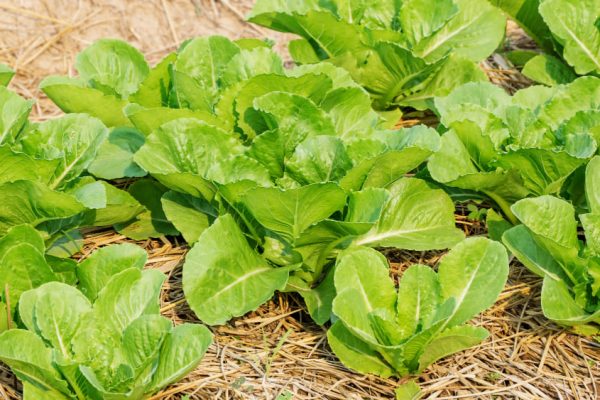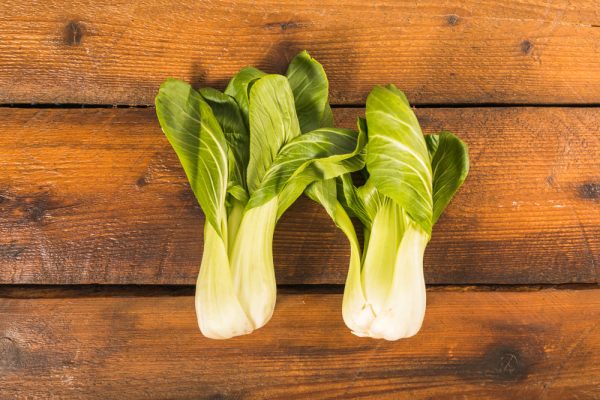Also known as Chinese cabbage, it comes in both purple and green varieties. A comparison of the metabolic profiles of green and purple Bok choy suggests that green Bok choy has a higher content of C metabolism–associated metabolites and maltose content, while purple Bok choy has a higher level of N metabolism–associated metabolites (e.g., amino acid and amino acid derivative), rutin and other secondary metabolites. This evidence suggests that purple Bok choy has a higher antioxidant activity than green Bok choy.


Bok choy, native to China, has spread to other regions worldwide over time. It belongs to the Brassica genus, which is widely grown and consumed in Asia, though it remains primarily used in Asian cuisine. Bok choy thrives in cooler temperatures (12°C to 24°C). It is sensitive to heat which could cause bolting (premature flowering) if temperatures rise significantly, but still requires full sun, and grows to a height of about 30–45 cm.
Glucosinolates and their products are primarily found in cruciferous plants within the Brassicaceae family, with over 200 types identified. Glucosinolates are a large group of plant secondary metabolites, of which their breakdown products (isothiocyanates) are known for their anticarcinogenic properties (studies say prostate, colorectal, lung and breast). Bok choy is also particularly high in vitamin C and vitamin K, providing substantial daily values compared to other cruciferous vegetables. However, it contains less vitamin A than kale, which is exceptionally rich in this nutrient.
Bok choy is low in calories but packed with essential vitamins and minerals. A single cup provides significant amounts of vitamins A, C, and K, along with calcium, iron, magnesium, and potassium, which are crucial for overall health and well-being.
The combination of calcium, phosphorus, magnesium, and vitamin K in bok choy contributes to maintaining strong bones. These nutrients are essential for bone density and strength, helping to prevent osteoporosis.
Bok choy contains compounds such as glucosinolates that have been shown to reduce the risk of certain cancers. Its high antioxidant content—including vitamins C and E—helps protect cells from damage caused by free radicals.
This vegetable is beneficial for cardiovascular health due to its high levels of potassium and fiber. Potassium helps regulate blood pressure, while fiber aids in lowering cholesterol levels, thereby reducing the risk of heart disease.
Bok choy is rich in quercetin; a flavonoid that helps reduce inflammation in the body. This can lower the risk of chronic diseases such as heart disease and diabetes.
The presence of vitamin C and selenium in bok choy enhances immune system function, helping the body fight off infections more effectively.
High in dietary fiber, bok choy promotes digestive health by preventing constipation and supporting a healthy gut microbiome.
Bok choy contains beta-carotene and vitamin A, which are important for maintaining good vision and may help prevent age-related eye diseases.
The antioxidants found in bok choy, particularly vitamin C, can help protect the skin from damage caused by environmental factors like UV rays and pollution
Bok choy is a good source of folate, which is essential for pregnant women to support fetal development and reduce the risk of neural tube defects.
If you have any question, don’t hesitate to contact us!
Copyright © 2024 Sow & Tell Indonesia | All Rights Reserved | Terms and Conditions